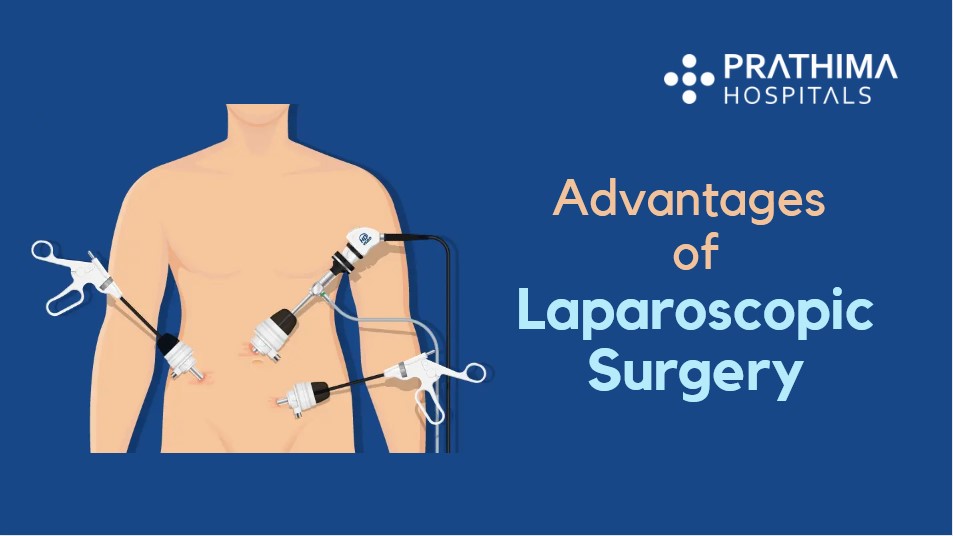Having a Laparoscopic Surgery: Benefits and Drawbacks

Advantages of Laparoscopic Surgery
INTRODUCTION:
Laparoscopic procedures have shown to be a tremendous improvement over conventional surgical techniques. Thanks to technological breakthroughs, we now have the possibility to perform a variety of surgical operations laparoscopically. Let’s examine the best general surgeon in hyderabad, an expert in laparoscopic surgery
How is laparoscopic surgery performed?
A safer and more recent form of surgery is laparoscopic or keyhole surgery. These operations involve very little intrusion.
What happens & What Tools are employed during Laparoscopic surgery?
Laparoscopic surgeon in kachiguda, uses a laparoscope, as the name would imply, lean and slim with a tiny camera and light on its tip, a laparoscope is a medical instrument. A few millimetre-long cuts or incisions are made by the surgeon to begin the procedure. After making these cuts, she or he inserts the device and any other tools required. The camera enables the surgeon to watch a video of the inside of the body on an external video screen. And thus the surgeon carries out the laparoscopic procedure.
Additionally, the abdomen is inflated and the abdominal walls are stretched during this treatment by the surgeon using CO2, or carbon dioxide. Why is carbon dioxide used in laparoscopic surgery, you may be wondering. It really makes it easier for the surgeon to see the interior components clearly and to have adequate room to work. The surgeon releases the gas when the procedure is complete. Finally, she/he applies stitches to heal the wounds.
Advantages of Laparoscopic Surgery
One of the most efficient medical treatments for addressing some serious health conditions is surgery. However, patients who undergo standard surgical procedures frequently have severe pain and large scars, which keep them in bed for months. Fortunately, less invasive procedures like laparoscopy are one of the benefits of an era of ongoing medical progress.
Modern surgical techniques like laparoscopic surgery promise to address some underlying health conditions in the pelvic area or abdomen in a quicker and less painful manner.
Let’s go through some of the many advantages of laparoscopic surgery.
Smaller Scars
The main benefit of laparoscopic surgery is that it heals with very little scarring on the patient’s body. The effective completion of laparoscopic surgery can be achieved with only a little incision thanks to the use of cutting-edge technology in locating the precise location where the incision can be made.
Less Blood Loss
A patient may require a blood transfusion after a routine procedure since there is a possibility of severe blood loss. Laparoscopic surgery, on the other hand, leaves very minor scars on the patient’s body, which lowers the danger of blood loss and, as a result, decreases the need for blood transfusion.
Lesser pain
One reason why so many people choose not to have surgery, which can worsen their health, is post-operative pain. Less pain is made possible by the tiny incisions used in laparoscopic surgery. While the stitches heal, a patient having this kind of surgery does not need to take long-term painkillers.
Minimal Hospitalization
Longer hospital stays of a week or more are needed for recovery after traditional surgery. However, a patient can only spend a maximum of two nights in the hospital following laparoscopic surgery.
Reduced Infection Risk
Larger scars from incisions, especially in obese people, increase the risk of infection because internal organs may be exposed to contaminates from the outside. But with less invasive laparoscopic surgery, scarring is reduced and infection risk also reduced.
Faster Recovery
Every patient who has surgery wants to stand up again as soon as possible! Depending on the circumstance, recovery from standard procedures might take anywhere between 4 and 8 weeks. On the other hand, recovery after laparoscopic surgery takes only 2 to 3 weeks, allowing for a significantly quicker return to normal life.
If your doctor the best laparoscopic surgeon in kukatpally suggests surgery because you have endometriosis, female infertility, an ectopic pregnancy, adhesions, internal organ malignancy, ascites, a hernia, kidney stones, cysts, liver illnesses, or any of the other conditions listed above, don’t be afraid. Most likely, a simple and painless laparoscopic procedure will be used to rapidly return you to your regular life.
Laparoscopic surgery disadvantages
Similar to a coin with two sides, laparoscopic operations offer benefits and drawbacks that you should think about before having one. One of the most crucial issues is that laparoscopic operations are incredibly expensive because the equipment needed to perform the procedure is very pricey. Because many less wealthy institutions cannot afford to purchase the instrument, many more people are unable to undergo laparoscopic surgery.
Complex operations might not be appropriate for laparoscopic surgery. The equipment needed to perform a laparoscopic surgery might not be adequate for a procedure requiring a 3-dimensional field of vision. These minimally invasive procedures are not suited for operations when significant amounts of tissue need to be removed.
If there are any complications during the laparoscopic surgery, a second open surgery can be required. Thus, patients who choose laparoscopic procedures run a higher risk of needing two procedures. Additionally, these procedures need a unique skill set, and not all hospitals have staff members who are trained to use the equipment. Therefore, before undergoing the treatment, you should take everything into account. If you have any concerns or issues, you may always go to a professional to get your inquiries answered!



